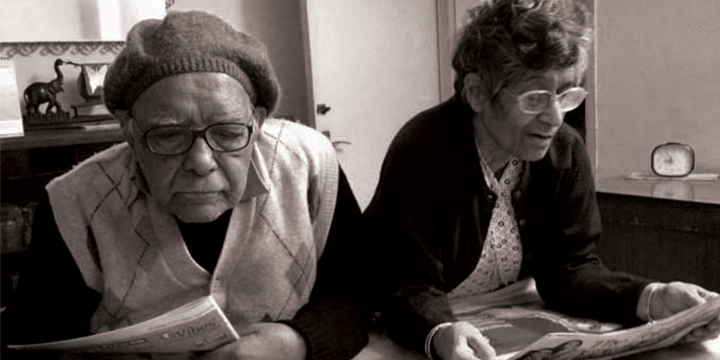The troubles of the elderly are chiefly financial, marked by the loss of independent earnings. Health-related problems typically afflict them too. Lack of safety and security are added hazards, especially in urban settings. As revealed by pan-India surveys, almost 30 per cent of the elderly are subjected to abuse or neglect, abandonment, and physical, financial or emotional abuse, often by their own family members. Many are left lonely. Yet, the non-existence of detailed data on crimes against the elderly in official compilations is striking, and points to insufficient focus on the issue.
With an enhancement in life expectancy, the number of seniors in India is expected to reach 177 million in the next 25 years and 324 million by 2050 — and women will constitute a majority of that legion. The global population of seniors above 60 is set to exceed the number of younger people by 2050. The challenges posed by an ageing population are clearly upon us.
The world today identifies the need for inclusiveness, which basically means the lack of discrimination against any section of society, giving everyone access to the same rights and opportunities. And yet, one of the fastest growing demographics remains excluded from basic rights like nutrition, health care and dignity. This is the plight of the 100 million strong demographic in India, the senior citizen population over the age of 60.
The transformation of the societal structure, from joint to nuclear families, is a large reason why the neglect and abuse rates have been rising in our environs. The task of ensuring basic standards of living for elders may be larger than expected, as the percentage of elders in society is rapidly rising with longer life-spans, drop in mortality rates and better healthcare.
Milestones in the rights of Elders in India:
The National Policy on Older Persons, 1999
In 1999, the International Year of Older Persons, the well-being of senior citizens was mandated in the Constitution of India under Article 41. “The state shall, within the limits of its economic capacity and development, make effective provision for securing the right to public assistance in cases of old age”.
Apart from measures like pensions, travel concessions, income tax relief, medical benefit, extra interest on savings, financial support was provided for institutions and medical support for the elderly.
National Policy on Senior Citizens 2011
The Policy furthered attempts to:
- Absorb senior citizens into the mainstream
- Promote the concept of ‘Ageing in Place’ or ageing in one’s own home and home care services
- The policy will consider institutional care as the last resort
- As a signatory to the Madrid Plan of Action and Barrier Free Framework, work towards an inclusive, barrier-free and age-friendly society.
- Advise States to implement the Maintenance and Welfare of Parents and Senior Citizens Act, 2007 and set up Tribunals.
Indira Gandhi National Old Age Pension Scheme
- Old age pension scheme would cover all senior citizens living below the poverty line
- Rate of monthly pension would be raised to Rs.1000 per month per person and revised at intervals
Rights under religious laws
- The statutory provision for maintenance of parents under Hindu personal law is contained in Sec 20 of the Hindu Adoption and Maintenance Act, 1956. This Act is the first personal law statute in India, which imposes an obligation on the children to maintain their parents.
- Under Islamic law, parents and grandparents in indigent circumstances are entitled to maintenance from their children and grandchildren. While the Christians and Parsis have no personal laws providing for maintenance for the parents.
The landmark Maintenance and Welfare of Parents and Senior Citizens Act, 2007
Not many elders are aware that the Maintenance and Welfare of Parents and Senior Citizens Act, 2007 is a legislation passed by the Indian Government that makes it a legal obligation for children, grandchildren, and heirs (biological or otherwise) to provide a monthly allowance, of up to Rs 10,000, if the elders do not have the resources to sustain themselves.
Elders also have the right to reclaim any property that they have transferred to their heirs if they are not provided basic standards of living. Senior citizens may report any failure to do so to the Tribunal set up under this Act, and move to be given maintenance as dictated by the Law.
Also, any instance of abuse, be it physical, financial, verbal or emotional, is taken seriously under this Act.
Overall, this legislation is too narrow and ineffective to serve as the primary legal channel for guaranteeing the rights of the elderly. India now needs to set new priorities as its demographic profile undergoes a rapid change. It ought to put in place a comprehensive policy and programme interventions for older persons. Meanwhile, free healthcare, more old age homes, other kinds of affordable housing, and financial assistance in the form of pension and other payouts, especially to widows, have to be provided for. The right of an elderly citizen to live a life of dignity must be made justifiable. Programmes to enhance skills and knowledge in geriatric care are needed. According to priority to the needs of senior citizens in development plans, including in infrastructure facilities, is essential. It is time separate ministries at the Central and State levels were set up to deal with issues concerning senior citizens. The government has a responsibility to protect the elderly and must take this job seriously.
If you need further help or advice, give us a call. TriBeCa Care is happy to be by your side. Request a callback or Call us at + 913366064208.
Email us at enquiry@newwpsite.tribecacare.com

